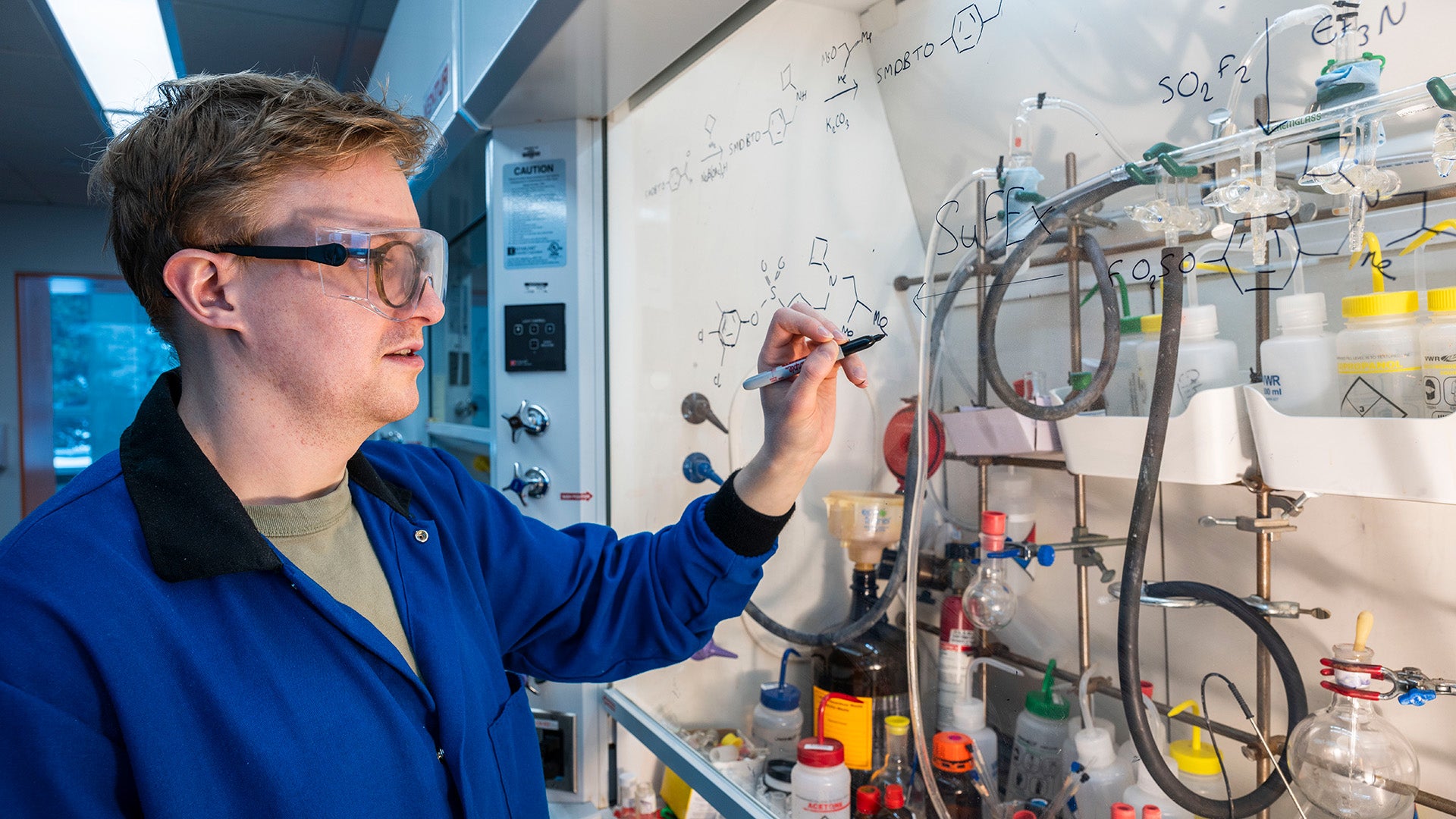Complex chemical and biological processes are fundamental for all life on Earth and all the organs inside us. When something goes wrong with these processes, diseases like cancer can arise. At the Cold Spring Harbor Laboratory (CSHL) Cancer Center, Professor John Moses and colleagues use click chemistry, a fast and reliable technique for linking molecules, to better understand how pancreatic cancer spreads—or doesn’t.
The National Institutes of Health’s National Cancer Institute (NCI) recently awarded the Moses lab three grants for projects leveraging click chemistry to create new, natural product-based compounds that could one day be used in the clinic.
“Natural products are incredibly hard to make in the lab,” explains Adam Moorhouse, a research investigator in the Moses lab. “Nature can do it with ease. Using click chemistry, we can transform and enhance these compounds to make better drugs.”
Overcoming drug resistance
Moses’ first NCI project focuses on a natural product called (–)-jerantinine A (JA). The chemical “has very potent activity against a broad spectrum of cancer cell lines,” Moses says. But there’s one catch. JA is only naturally produced by an endangered plant species in the jungles of Malaysia. Extracting and manufacturing it at scale through conventional means would be virtually impossible.
So, Moses’ team went another route. They synthesized JA in the lab and modified it to enhance its binding with a cancer-causing mutant protein. With collaborators at the University of California, San Francisco, they then added another structural element to enable it to target the protein more precisely. This research is still in the “discovery phase,” Moses says. However, a nature-based therapy with multiple modes of action could aid in treating drug-resistant cancers.
Moses describes his lab’s mission as “chemistry for biology.”
CoMMbating pancreatic cancer
Since 2021, Moses and CSHL Professor David Tuveson have been collaborating on a project that recently received another NCI grant. Together, the team developed a new class of therapeutics called Clickable Covalent Metabolite Mimetics (CoMMs). Their approach involves using click chemistry to “supercharge” natural molecules so that they bind to and deactivate an enzyme called SOAT1. When overexpressed in the body, SOAT1 helps pancreatic tumors develop. Traditional methods of inhibiting it have not been strong or targeted enough. By comparison, tests show CSHL’s natural product-inspired molecules are very selective. While toxic to pancreatic cancer cells, they are nontoxic to mice.
Moses says the grant will bring their team “one important step closer to a clinical trial.”
Inspiring innovations
A third project begins with the NCI’s Natural Product Repository, one of the world’s largest and most diverse collections of natural compounds. Moses, Moorhouse, and Tuveson will design a screen to test product mixtures in the repository for their ability to block the activity of an enzyme called KLK6. The most promising molecules will then get tested using unique organoids—miniature 3D tissue models—developed in the Tuveson lab. Tuveson says these organoids offer a “new method for modeling pancreatic cancer in vitro using cancer cell and fibroblast co-cultures.”
Previous work in the Tuveson lab has shown that KLK6 helps precancerous cells invade surrounding tissues in developing pancreatic cancer. The disease typically isn’t diagnosed until it’s in an advanced stage and has spread beyond the pancreas. “But what if KLK6-stopping molecules could evolve into a preventative therapy?” Moses asks. His lab now plans on using click chemistry to coax out that transformation.
Moses notes that government-funded exploratory science has been crucial for developing many of today’s most successful medicines. “Many great medical advances begin as academic ideas,” he says. “The success of the pharmaceutical industry and biotech comes from this ground-level innovation.” With continuing support, his lab now looks to usher in the next generation of cancer therapeutics.
Written by: Margaret Osborne, Science Writer | [email protected] | 516-367-8455
